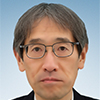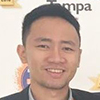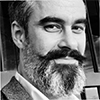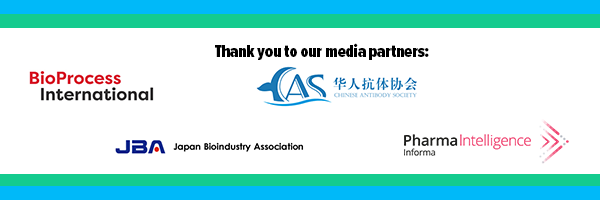DAY 1 – APRIL 11, 2022 – Cell Culture & Upstream Processing
Novel Approach to Improve Viral Vector Harvest Process
9am JST / 2am CEST / 1am BST / 8pm EDT
Over the last few years recombinant adeno associated virus (rAAV) have emerged as a versatile and preferred gene delivery platform. Various rAAV manufacturing process steps are being optimized to improve flexibility, scalability, and titer of infectious particles. Most rAAV stereotype manufacturing process require physical and/or chemical treatment of HEK 293 cells to release vectors from cells followed by clarification and purification. It has been observed that this treatment step can lead to either lower titer or lower infectivity due to damaged capsid of various rAAV stereotypes. It has been previously reported that the AAV capsid viral protein may undergo folding/unfolding which can impact infectious titer. We have developed a process utilizing novel cell lysis solution to harvest rAAV vectors. This process step can also simultaneously perform DNA digestion step. This presentation will discuss methodology and results of optimize harvest and purification process that can increase the infectious titer of selected rAAV vector stereotypes as compared to traditional chemical or physical lysis. The observed improvement is due to novel cell lysis solution composition that rapidly release of viral particles and stabilize/protect of viral particles during harvest steps.
Speakers:

Narayana Rao
Vice President – Biopharma Asia Pacific Middle-East Africa
Avantor

Tuhidul Islam
Manager II, R&D Engineering, Bioprocess Applications
Avantor

WonHyun Hwang (James)
Application Manager, Asia Pacific Middle-East Africa Innovative Customer Support Center
Avantor
View More Details +
Scaling to 20,000-L Stainless Steel Bioreactors Using Single-Use Technologies: A Case Study
10am JST / 3am CEST / 2am BST / 9pm EDT
As current global capacity is struggling to meet market demands new approaches and methodologies are making bold moves and emerging to fill the gap and deliver larger scale manufacturing capacities at ever increasing rates. How does the process development function leverage single-use capabilities to develop process to be transferred into large scale stainless steel bioreactors and further expand manufacturing possibilities?
Speaker:

Sharyn Farnsworth
Senior Principal Scientist & Group Leader, Upstream Process Development-Cell Culture Team
FUJIFILM Diosynth Biotechnologies
View More Details +
Challenges in the Practice of Continuous Perfusion Bioprocessing
11am JST / 4am CEST / 3am BST / 10pm EDT
Various approaches are being taken to improve productivity of cell culture processes for mAb manufacturing. Continuous perfusion operations offer a viable option for improving cell culture productivity enabling both high density cultures in both seed train and production bioreactors. This presentation will describe the latest approaches for intensified upstream and summarize risk-based specific considerations for upstream continuous perfusion bioprocessing from a regulatory perspective.
Speaker:

Takao Ito
Principal Consulting Engineer, Global BioPharm Center of Excellence
Merck Ltd
View More Details +
DAY 2 – APRIL 12, 2022 – Downstream Processing & Cell Therapy
Contribution to the Global Virus Safety Against Emerging Viruses
9am JST / 2am CEST / 1am BST / 8pm EDT
The risk for transmission of emerging viruses is a serious threat to public health and have become a global concern. As a leading company that launched the world's first virus removal filter Planova, Asahi Kasei has contributed to the virus safety of pharmaceutical products through collaboration with various pharmaceutical companies, academic institutions and regulatory agencies. This presentation introduces the history and progress of our challenge to emerging viruses.
Speaker:

Tomoko Hongo-Hirasaki, Ph.D.
Lead Expert, Scientific Affairs, Global Marketing, Bioprocess Division
Asahi Kasei Medical Co., Ltd.
View More Details +
MaruXTM: A Continuous Process Platform for Manufacturing Monoclonal Antibodies
10am JST / 3am CEST / 2am BST / 9pm EDT
Continuous manufacturing provides a solution for uncertainty in capacity as drug candidates progress through clinical development to commercial supply. We present a case study describing the production of a monoclonal antibody using a single-use flowpath, 500 L scale process in a non-GMP pilot facility, which is a forerunner to the construction of a continuous GMP manufacturing facility. Using our proprietary ApolloXTM high-biomass ‘perfusion ready’ cell line, combined with a commercially available single-use bioreactor operated in perfusion mode and our proprietary SymphonXTM liquid handling systems, which are used for point-of-use buffer dilution and multiple chromatography steps in a connected, intensified downstream process, we were able to process ~1 kg mAb/day.
Speaker:

Charles Heise
Senior Staff Scientist, Bioprocessing Strategy & Development Group
FUJIFILM Diosynth Biotechnologies
View More Details +
Intensified Downstream Processing with New Mobius® Multi Column Capture System for mAb Production
11am JST / 4am CEST / 3am BST / 10pm EDT
For the mAb process development and production, the market trend is driving to increase the process flexibility, improve process productivity, and reduction in economics. Integrated continuous production technologies are getting noticed and generated the greatest interests to develop the next generation mAb process template.
In the presentation, new and innovative of Mobius® Multi Column Capture chromatography system, continuous viral inactivation process, and a full flow-through downstream process for the mAb purification will be sharing. The integrated and continuous process is capable to remove process and product related impurities effectively, also achieve the goal of high product yields and quality.
Speaker:

Chester Hu, Ph.D.
Senior Consultant, BioProcessing Strategy Operationalization
View More Details +
Scaling Workflow Solutions for Advanced Therapy Manufacturing
12pm JST / 5am CEST / 4am BST / 11pm EDT
To date, advanced therapies have relied on manufacturing technologies designed and deployed to serve the needs of the biologics industry. While some of these have worked to move the industry forward, almost all of them have shortcomings in terms of process efficiency, scalability, and risk reduction. Each of our technology platforms focus on three key deliverables: platformability – remaining as agnostic to therapeutic modality as possible; scalability – able to work for researchers, developers, and commercial manufacturers; and durability – serving unmet needs today, but also providing room to grow and adapt to future needs. Our platforms address key challenges in advanced therapy manufacturing from cell engineering for viral vector manufacturing and immuno-oncology cell therapy, to culture intensification and process analytics across a range of cell types and therapeutic modalities, all the way through to novel purification technologies addressing larger and more complex molecules. Putting all this together, we provide a continuum of unique tools and technologies that address the needs of the advanced therapy industry today, while future-proofing against what is yet to come.
Speakers:

Miguel Dominguez
Director Field Applications & Support
Mirus Bio

Tania Pereira Chilima
Chief Technology Officer
Univercells Technologies

Daniella Steel
Senior Product Manager, Cell & Gene Therapy
Astrea Bioseparations
View More Details +
DAY 3 – APRIL 13, 2022 – Cell & Gene Therapy
The Role of Virus Filtration in Achieving Pathogen Safety of Cell and Gene Therapy Products
9am JST / 2am CEST / 1am BST / 8pm EDT
Viral safety and risks for cell and gene therapy, how to improve pathogen safety of cell and gene therapy.
Speaker:

Takeyoshi Araki
Manager, Scientific Affairs, Global Marketing, Bioprocess Division
Asahi Kasei Medical Co., Ltd.
View More Details +
Development of an AAV Manufacturing Platform to Streamline Path Toward Clinics and Commercialization
10am JST / 3am CEST / 2am BST / 9pm EDT
Cell and Gene Therapies continue to offer exciting avenues as curative therapies for unmet patient needs in the ultra-rare, rare, and beyond rare clinical indications. To serve these unmet needs, cell and gene therapy companies are developing multiple products that are expected to rapidly advance from pre-clinical stages to clinical trials.
In order to successfully move from the lab to the clinic in a timely, predictable manner while maintaining the highest product quality and safety, companies must begin by developing robust, scalable, reproducible manufacturing processes. Leveraging a manufacturing platform can help expedite the critical path for clinical development and commercialization.
This presentation will review the key challenges companies face and illustrate how FUJIFILM Diosynth Biotechnologies is helping clients overcome them, including:
- Access to an AAV manufacturing platform which includes a fully characterized, suspension adapted, clonal HEK293 cGMP cell line together with research and cGMP-grade Rep/Cap, Helper, and GOI (backbone) plasmids to accelerate early process development.
- Comprehensive panel of analytical methods to support phase-appropriate product characterization and batch release testing.
- Access to an end-to-end service offering for drug substance and drug product manufacture and an integrated manufacturing network which can support process scale up, with the flexibility to meet clinical and commercial product demand.
Speaker:

Hung X. Nguyen, PhD
Manager, Program Design (Advanced Therapies)
FUJIFILM Diosynth Technologies
View More Details +
Process Development Excellence to De-risk and Accelerate Commercialization of Cell and Gene Therapies
11am JST / 4am CEST / 3am BST / 10pm EDT
In order to commercialize cell land gene therapies and treat large number of patients, it is important to demonstrate the safety and efficacy of these therapies and establish robust and reliable manufacturing processes. Here, we introduce some of the bioprocessing best practices taken in early development phase to de-risk the manufacturing and develop commercially viable cell and gene therapies.
Following a carefully planned manufacturability assessment, appropriate development studies must be designed to implement innovative technologies with appropriate in process control and monitoring analytical methods to ensure robustness and reproducibility of the manufacturing process. It would be also important to eliminate open and variable manual unit operations while incorporating comprehensive characterization assays in the process to verify long term stability of the products. The development of automated, scalable, computer-controlled 3D Bioreactor with appropriate downstream and cell processing technologies may be critical to minimize GMP manufacturing risks and produce high quality cell therapy products.
Speaker:

Behnam Ahmadian Baghbaderani, PhD
Global Head of Process Development Cell & Gene Technologies
Lonza
View More Details +
iPSC Processes: Road to Automation and Closed Systems
12pm JST / 5am CEST / 4am BST / 11pm EDT
Stemson Therapeutics is the world’s leading preclinical regenerative medicine company focusing on restoring hair follicle function to treat alopecia for millions of patients globally. This seminar summarizes our technology initiatives in using iPSC-derived cell types to form hair follicle organoids and transplant into large animal models using biodegradable scaffolds. We also use ML/AI driven QC processes to improve cell function during differentiation and manufacturing. Process time can be shortened and variability controlled by data management, automation, and the standardization of matrix, media, and molecules.
Speaker:

Cenk Sumen
Chief Technology Officer
Stemson Therapeutics
View More Details +
Can One Size Fit All? The Future of Plug-and-Play Large-Scale AAV Manufacturing
1pm JST / 6am CEST / 5am BST / 12am EDT
Adeno-associated viruses (AAV) are among the most common vectors used for ex-vivo and in-vivo gene therapies. Yet, despite hundreds of biotechnology and engineering studies, standard procedures for large-scale manufacturing of these vectors remains inconsistent. This session will discuss trends in AAV-based gene therapy production. It will cover streamlined approaches for creating large-scale AAV production that can meet any product specification.
Speaker:

Maggie Chen
Senior Director of Cell and Gene Manufacturing
AGC Biologics
View More Details +
DAY 4 – APRIL 14, 2022 – Antibody Engineering & Therapeutics
Three Antibody Experts Share New Data and Research Results:
- The SHREAD Platform: SHielded, REtargeted ADenovirus for the Paracrine Delivery of Therapeutics (Andreas Plückthun, University of Zurich)
- Epitope-specific Antibody Design Via Deep Learning Based Structural Modeling (Possu Huang, Stanford)
- Anti-SARS-CoV-2 B Cell Responses Induced by Homologous and Heterologous Prime-boost Vaccination (Laura Walker, Ph.D., Adagio Therapeutics and Adimab)
9am JST / 2am CEST / 1am BST / 8pm EDT
Presentation #1 - The SHREAD Platform: SHielded, REtargeted ADenovirus for the Paracrine Delivery of Therapeutics
In recent years we developed the SHielded REtargeted ADenovirus (SHREAD) system, which allows to produce a cocktail of therapeutics in the body at a defined location. It is based on DARPins as adapters to any cell-surface receptor desired and shielded from undesired interaction by a designed protein shield. The particles carry no viral genes. We will demonstrate a number of novel applications and analysis tools.
Speaker:

Andreas Plückthun, Ph.D.
Professor and Director, Department of Biochemistry
University of Zürich, Switzerland
Presentation #2 - Epitope-specific Antibody Design Via Deep Learning Based Structural Modeling
The growing need for antibodies with customized specificity provides a rich environment for engineering efforts. Conventional protein design methods have offered a solid framework, and we recently launched new efforts in incorporating deep neural networks to the structural modeling tasks. By leveraging the unique properties of neural networks, we developed a generative model for immunoglobulin structures, with which diverse structures can be modeled with unprecedented speed. We will discuss the potential for designing epitope-specific antibodies by a novel flexible backbone protein docking strategy.
Speaker:

Possu Huang, Ph.D.
Assistant Professor of Bioengineering
Stanford University
Presentation #3 - Anti-SARS-CoV-2 B Cell Responses Induced by Homologous and Heterologous Prime-boost Vaccination
The continued spillover of coronaviruses from zoonotic reservoirs and the emergence of resistance SARS-CoV-2 variants in the human population highlights the need for broadly active counter measures. Here I will describe the identification of broadly neutralizing monoclonal antibodies (bnAbs) and cocktails thereof that potently neutralize SARS-CoV-2 variants of concern as well as pre-emergent SARSlike viruses and mitigate the emergence of resistance in vitro. The results support the development of bnAbs for the treatment and prevention of COVID-19 and future emerging sarbecovirus threats.
Speaker:

Laura Walker, Ph.D.
Chief Scientific Officer, Adagio Therapeutics and Senior Director of Antibody Sciences
Adimab LLC
View More Details +
Writing the Future of Biologics using the Twist Biopharma Library of Libraries
11am JST / 4am CEST / 3am BST / 10pm EDT
Utilizing its proprietary DNA technology to write synthetic libraries, Twist Biopharma provides end-to-end antibody discovery libraries including both (1) highly diverse synthetic naïve antibody phage display libraries and (2) target class specific antibody phage display libraries against difficult-to-drug targets. In this talk, Aaron Sato, CSO, will present several POC data on each member of their Library of Libraries. For some of the targets, the power of selecting multiple libraries against each target will be highlighted.
Speaker:

Aaron Sato
Chief Scientific Officer
Twist Bioscience
View More Details +






















